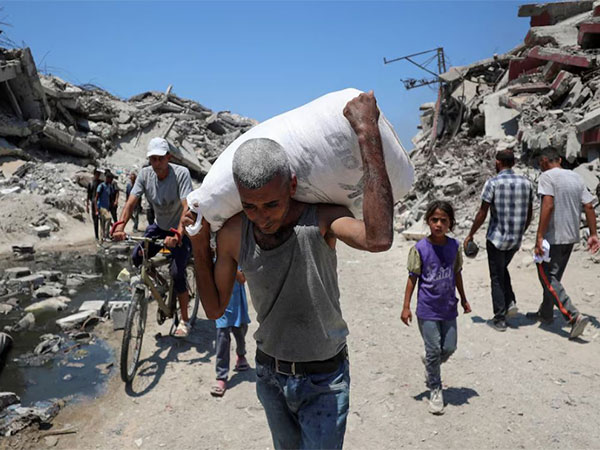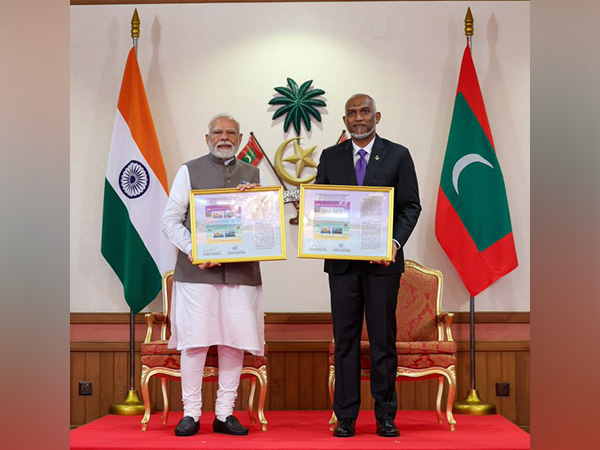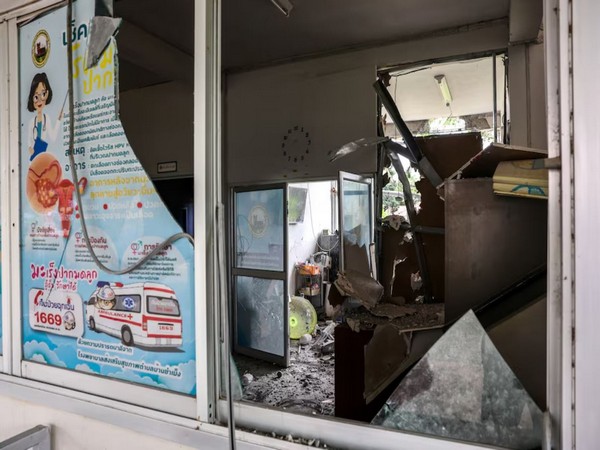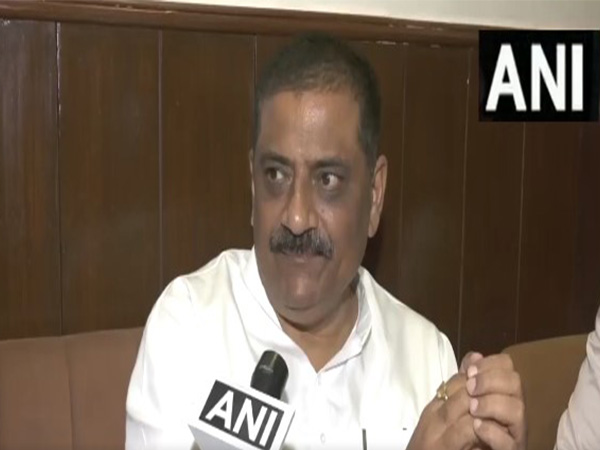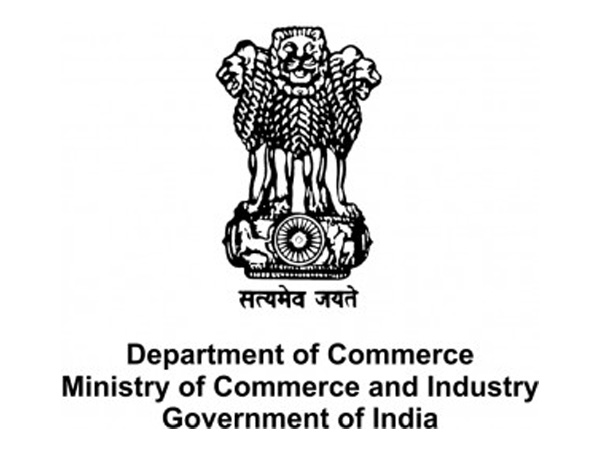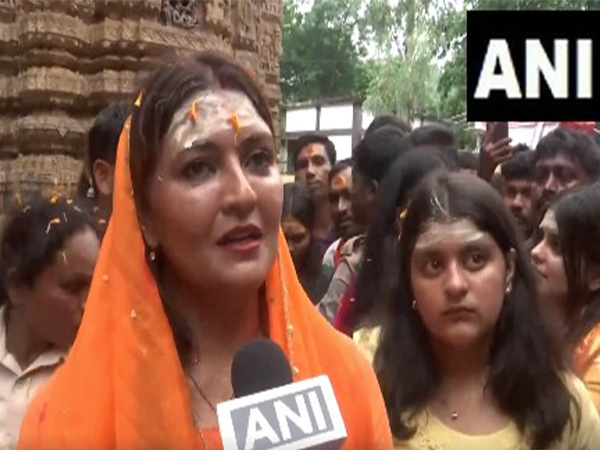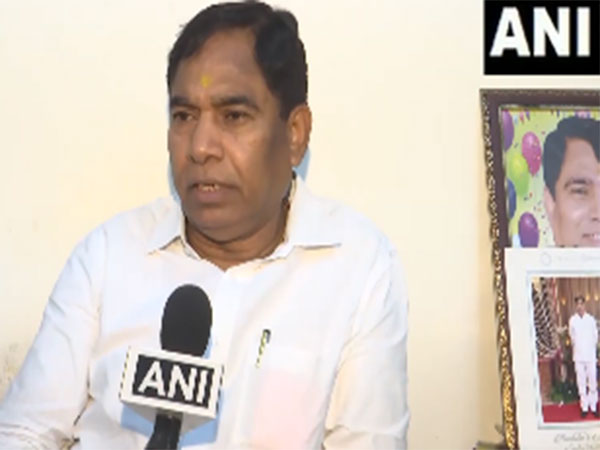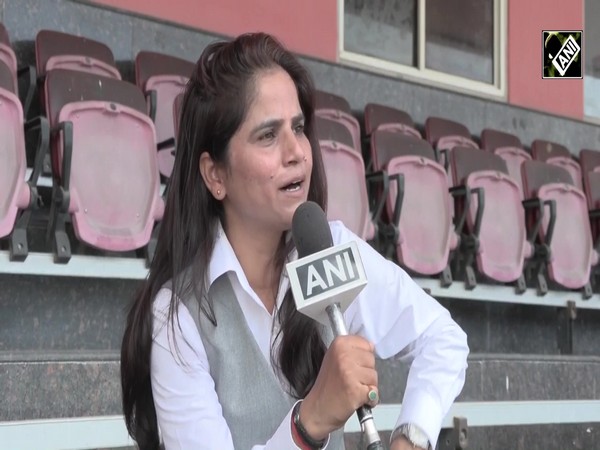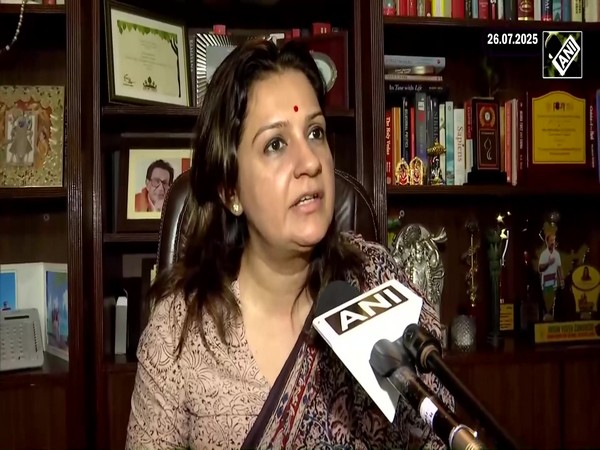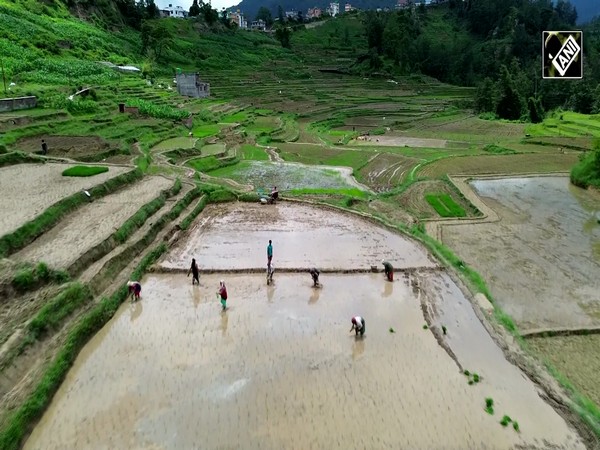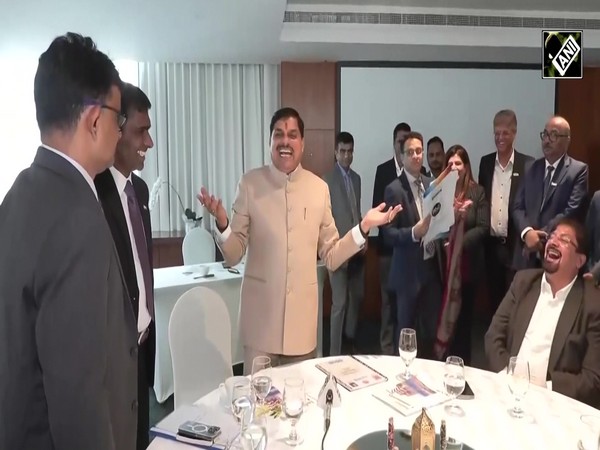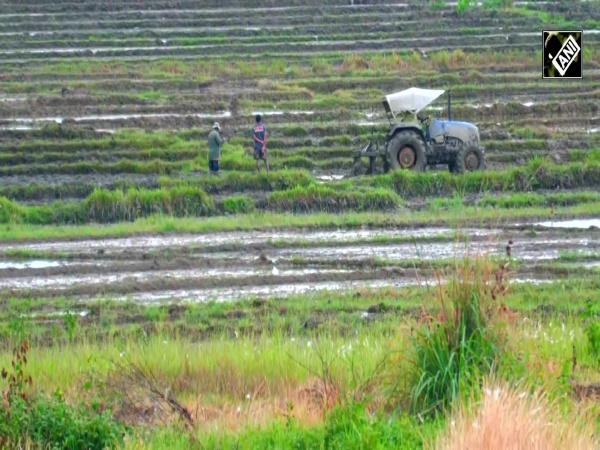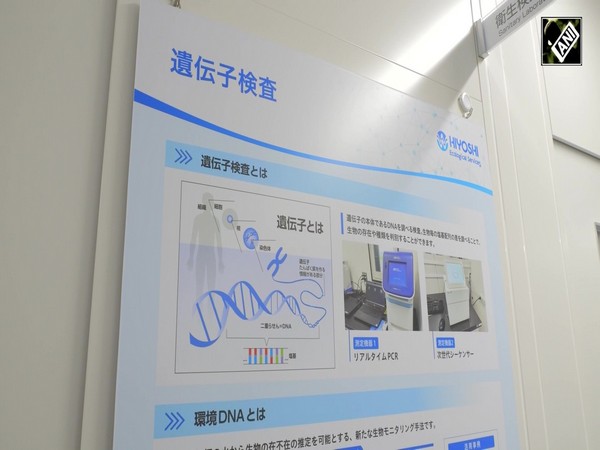UAE stresses importance of uniting global efforts to confront international development challenges
Apr 21, 2024

Dubai [UAE], April 21 (ANI/WAM): The UAE concluded its participation in the 2024 Spring Meetings of the International Monetary Fund and the World Bank Group, held in Washington, DC, where the main ministerial meetings and events were held during the period April 17 - 19, while side events and activities were organized during the period. April 15-20.
His Excellency Mohammed bin Hadi Al Husseini, Minister of State for Financial Affairs, headed the state delegation, which included His Excellency Ibrahim Al Zaabi, Assistant Governor for the Monetary Policy and Financial Stability Sector at the Central Bank of the United Arab Emirates, His Excellency Ahmed Al Qamzi, Assistant Governor - Banking and Insurance Supervision at the Central Bank of the United Arab Emirates, and Ali Abdullah Sharafi, Acting Assistant Undersecretary for International Financial Relations at the Ministry of Finance, Hamad Issa Al Zaabi, Director of the Office of His Excellency the Minister of State for Financial Affairs, Thuraya Hamid Al Hashemi, Director of International Financial Relations and Organizations at the Ministry of Finance, and a number of specialists from the Ministry of Finance and the Central Bank of the United Arab Emirates.
The 2024 Spring Meetings will bring together central bank governors, finance and development ministers, members of parliament, private sector executives, representatives of civil society organizations, and academics, to discuss issues of common global interest, including global economic forecasts and development challenges for countries' economies. Especially developing countries and the requirements for developing financing policies for comprehensive development, and other activities that focus on the global economy and developing global financial system policies.
His Excellency Mohammed bin Hadi Al Husseini stressed the importance of the issues discussed within the spring meetings of the International Monetary Fund and the World Bank Group and their role in enhancing dialogue between all parties concerned with discussing these issues, stressing the UAE's keenness to combine joint efforts to accelerate comprehensive and sustainable development to move towards a global development path characterized by Flexibility and ability to deal with variables.
His Excellency also held meetings with the finance ministers of Pakistan, Ethiopia, Poland, the United Kingdom, and the United States, where the discussions touched on expanding the horizons of joint cooperation and unifying international cooperation efforts to solve global challenges.
During his participation in the 2024 Spring Meetings of the International Monetary Fund and the World Bank Group, His Excellency Ibrahim Al Zaabi stressed that the meetings and participation in the accompanying event constituted an opportunity to enhance dialogue and exchange of views between member states regarding developments in the global economy and economic growth prospects, which helps develop areas of international cooperation and enhance Stabilizing the global financial system, advancing sustainable development efforts and finding effective solutions, in addition to focusing on the importance of exchanging experiences and building the technical capabilities of member states and enabling them to promote sustainable growth.
On the sidelines of his chairing the joint plenary session of the 109th meeting of the Development Committee (DC) of the World Bank Group and the International Monetary Fund, which was titled "From Vision to Impact: The Evolution of the World Bank Group," His Excellency Mohammed bin Hadi Al Husseini stressed the importance of urgently and effectively confronting development challenges and activating He held frank discussions about it, and expressed his optimism about the recovery of the major economies, which began to show its signs after the profound transformations that the world witnessed in the past four years.
At the same time, His Excellency warned of turbulent recovery prospects for developing countries, which affects the slowdown in achieving the 2030 Sustainable Development Goals, at a time when many countries are exposed to increasing restrictions due to weak growth and high debt service burdens, which leads to exacerbation of poverty and other problems. Economic and social challenges.
His Excellency called for unifying the efforts of the international community by defining a new path of action to address emergencies resulting from poverty, and working to improve the effectiveness and operational efficiency of the World Bank, to implement financing requirements for projects more quickly, especially transformative projects for energy, water, health, and digital transformation infrastructure, in addition to finding tools. New solutions for crisis preparedness and response, and other blended and sustainable financing solutions by activating financing tools in partnership between development financial institutions and the private sector.
The Development Committee (DC) is a ministerial-level forum for the World Bank Group and the International Monetary Fund to build intergovernmental consensus on development issues. Its mission is to advise the Boards of Governors of the World Bank and the International Monetary Fund on critical development issues and the financial resources needed to promote economic development in developing countries. It meets twice a year during the Spring Meetings and annual meetings of the World Bank Group and the International Monetary Fund.
The plenary session of the International Monetary and Financial Committee (IMFC) monitored the consideration of the Global Policy Agenda developed by the Director General of the International Monetary Fund entitled "Reconstruction, Recovery, and Renewal."
His Excellency Mohammed bin Hadi Al Husseini delivered a keynote speech at the plenary session, in which he said that the recovery of the global economy remains uneven, especially in countries with fragile economies and those affected by conflicts, as they disproportionately bear the burden of ongoing geopolitical developments and more stringent global financial conditions.
He touched on some of the global challenges related to the increase in interest payments, the general depletion of protective reserves, and limited growth prospects in the medium term, especially in emerging market and developing economies, stressing the need for close coordination between the International Monetary Fund and the World Bank Group, and the need to ensure food and food security. Energy, promoting trade, supporting economies that need to reduce debt, and providing financing for climate adaptation, while supporting climate change efforts, and stressed the priority of continuing flexible and adequate support from the Fund to ensure the success of countries in implementing stabilization efforts and reform agendas.
His Excellency reviewed the UAE's successes in promoting the global climate agenda at the Conference of the Parties to the United Nations Framework Convention on Climate Change (COP28), which it hosted last year. It witnessed unprecedented debate on using all fossil fuels in energy systems in a fair, regulated and equitable manner, in addition to making a historic commitment to triple renewable energy sources, double global energy efficiency, and end deforestation by 2030.
The International Monetary and Financial Committee (IMFC) is responsible for advising and reporting to the IMF Board of Governors as it manages and shapes the international monetary and financial system.
The Committee also monitors global liquidity developments, transfers resources to developing countries, and deals with current events that may disrupt the global monetary and financial system.
The Committee meets twice a year during the Spring Meetings and Annual Meetings of the International Monetary Fund, discusses issues affecting the global economy, provides advice to the International Monetary Fund on the direction of its work, and at the end of the meetings issues a statement summarizing the views of the Committee members that are agreed upon, to provide guidance data for a work program. The International Monetary Fund during the half-year preceding the Spring Meetings or the next annual meetings.
There is no formal vote in the International Monetary and Financial Committee, which usually works by consensus.
The meetings in which the UAE delegation participated included the "Middle East and North Africa Meeting (MENAP)," which discussed macroeconomic stability and debt sustainability, addressing geopolitical challenges, improving medium-term growth prospects, the effects of uncertainty, and strategies for maintaining stability during shocks. The right mix of monetary and fiscal policies, the structural reforms necessary to make economies more resilient to downside risks, and the need for transformative climate and technology reforms to sustain and accelerate a balanced recovery.
The second meeting of the G20 finance ministers and central bank governors (FMCBG) discussed financing requirements for a just transition and achieving climate goals, and restructuring international financial rules for the twenty-first century, and reviewed the views of the G20 finance ministers and central bank governors on how the G20 can work to enhance cooperation and coordination. Between public institutions such as multilateral development banks, public banks and green funds, along with relevant parties from the private sector. (ANI/WAM)
